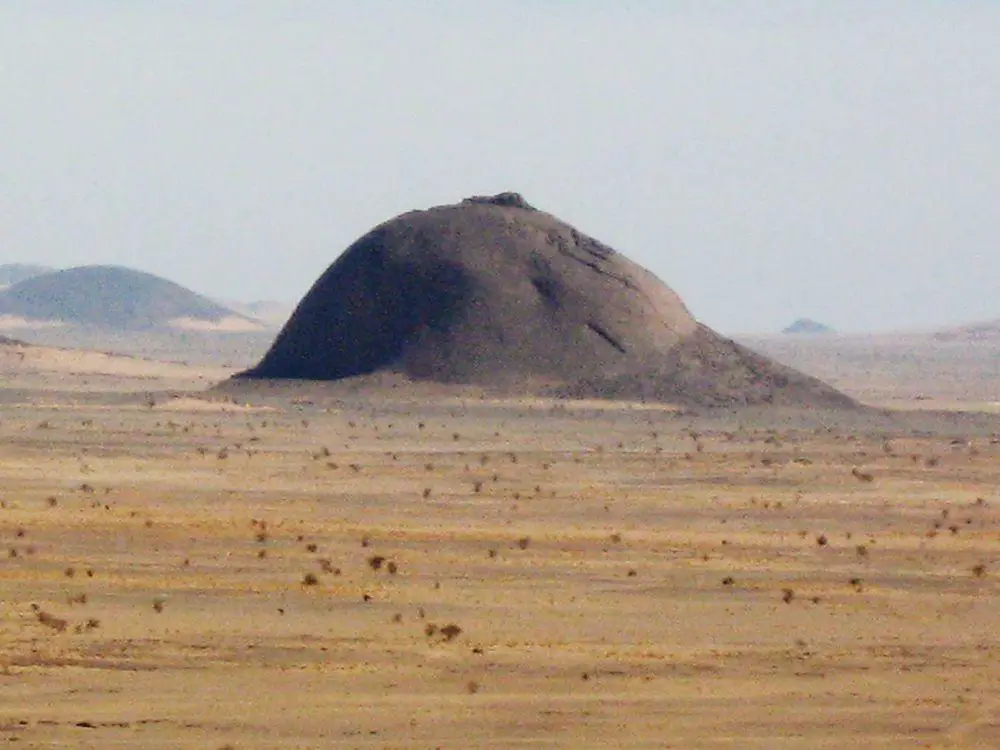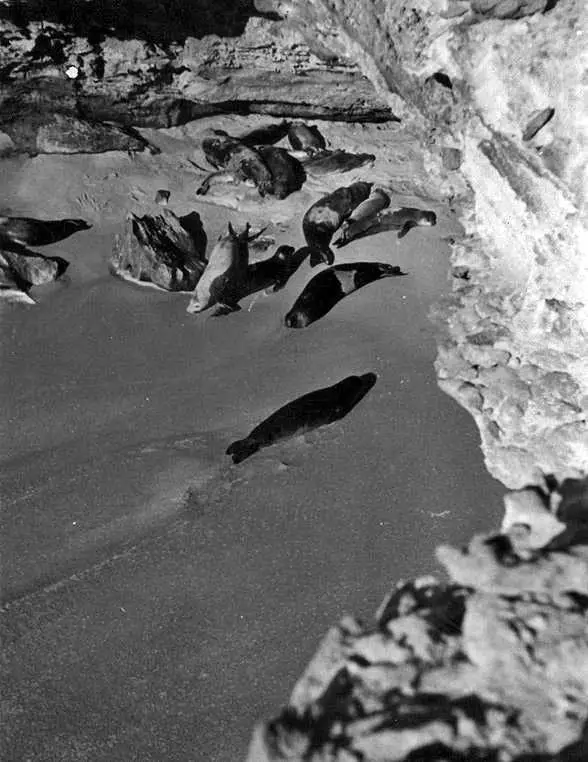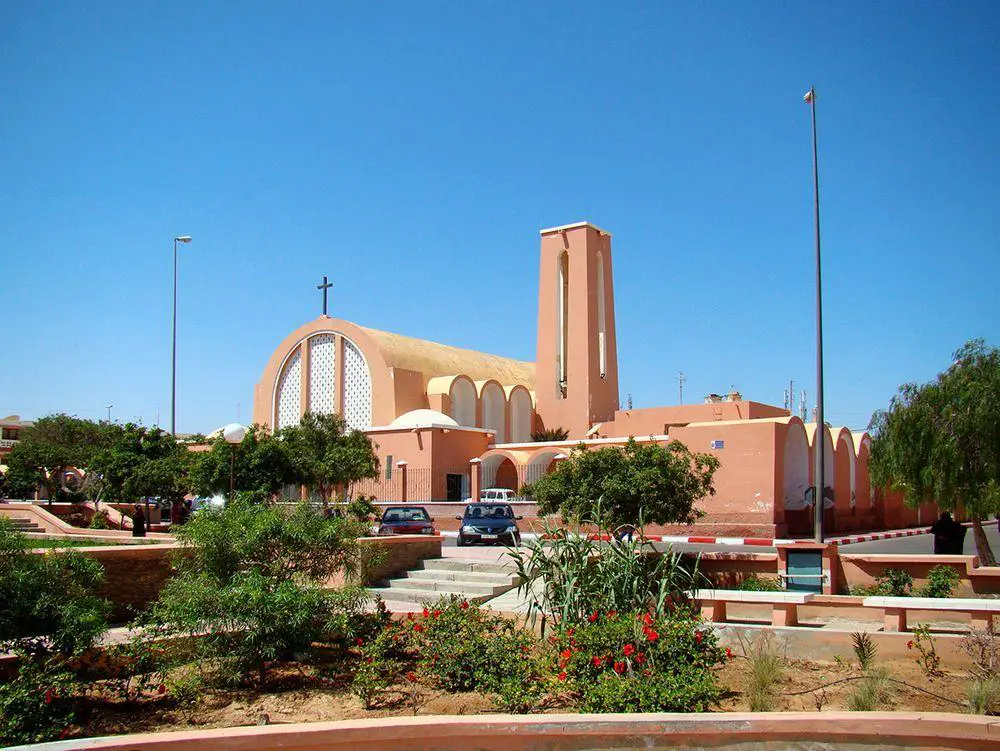Wondermondo 🢖 World 🢖 Wonders of Africa 🢖 Wonders of Western Sahara
Territory
Wonders of Western Sahara

 Highlights
Highlights
The barren Western Sahara with its unclear political status is not a tourist hotspot, and is also not too rich with natural and man-made heritage.
Similar to the other countries of Sahara, the most impressive landmarks here are sites of prehistoric rock art.
Map with the described wonders
If you see this after your page is loaded completely, leafletJS files are missing.
 Top 14 wonders of Western Sahara
Top 14 wonders of Western Sahara
Geological wonders
Devil’s Mountain
Giant natural monolith – rounded and very unusual mountain with a smooth surface, rising hundreds of meters above the desert. Prehistoric rock art (4 000 – 1 000 BC), sacred and even mystical place to Sahrawi people.
Oum Dbaa dry cascade
Seasonal waterfall with interesting tufa formation. Formed by spring water that contains lime and salt.
Biological wonders
Cabo Blanco seal colony
The only colony of monk seals in the world. There in caves lives a group of extremely rare Mediterranean monk seals (Monachus monachus), there could be living some 200 seals.

Archaeological wonders
Tifariti stelae
A unique group of prehistoric steles. Here are located some 65 rock steles that are up to 1.5 m high. Steles are aligned in enclosures or lineaments.
Sluguilla Lawash
Very rich rock art site along the wadi Laauach el Tel·li, with Tazina-style engravings. Most drawings show wild animals – giraffes, rhinoceros, and elephants. The site contains numerous prehistoric tumuli in conical form. Often legs of animals in drawings are unnaturally elongated.
Lejuad
Impressive granitic monoliths with rich collections of neolithic rock art, funerary monuments, and settlements.
Cueva del Diablo
A prehistoric shelter – a cave with some of the most impressive engraved images in this part of the world.
Erqueiz rock art
Site with a rich collection of prehistoric rock art – paintings of wild animals and cattle, also humans. Endangered by looting. Here are found also megalithic steles – upright stones.
Rekeiz Lemgasem
Valuable rock art site, megaliths. More than 80 prehistoric rock shelters with paintings in them have been found here. Impressive megaliths and funerary monuments.
Irghayra rock art
Site with a rich collection of prehistoric rock art – paintings of wild animals and cattle, also humans.
Bou Dheir
Very diverse prehistoric paintings in numerous rock shelters, often in a very good state of preservation. Many drawings are very large, and paintings show wild animals and humans. On the plateau above the shelters is found also a large crescent-shaped structure – a stone setting.
Architecture wonders
Bou Kraa conveyor belt
Approximately 100 km long conveyor belt from Bou Kraa phosphate mines through the desert to El Marsa port. The longest conveyor belt in the world, partly destroyed in warfare.
El Aaiún Cathedral
Spanish built a Christian cathedral in Art Deco style.

Moroccan Wall
Approximately 2,700 km long fortification wall, partly in the territory of Morocco. Divides Moroccan-controlled areas and Polisario-controlled territories. Mostly two-three meters tall walls with minefield around it. Built by Moroccans in 1981 – 1987.
 Recommended books
Recommended books
Skeletons on the Zahara: A True Story of Survival
A masterpiece of historical adventure, Skeletons on the Zahara chronicles the true story of twelve American sailors who were shipwrecked off the coast of Africa in 1815, captured by desert nomads, sold into slavery, and subjected to a hellish two-month journey through the perilous heart of the Sahara.
Sahara Unveiled: A Journey Across the Desert
It is as vast as the United States and so arid that most bacteria cannot survive there. Its loneliness is so extreme it is said that migratory birds will land beside travelers, just for the company. William Langewiesche came to the Sahara to see it as its inhabitants do, riding its public transport, braving its natural and human dangers, depending on its sparse sustenance and suspect hospitality. From his journey, which took him across the desert’s hyperarid core from Algiers to Dakar, he has crafted a contemporary classic of travel writing.


